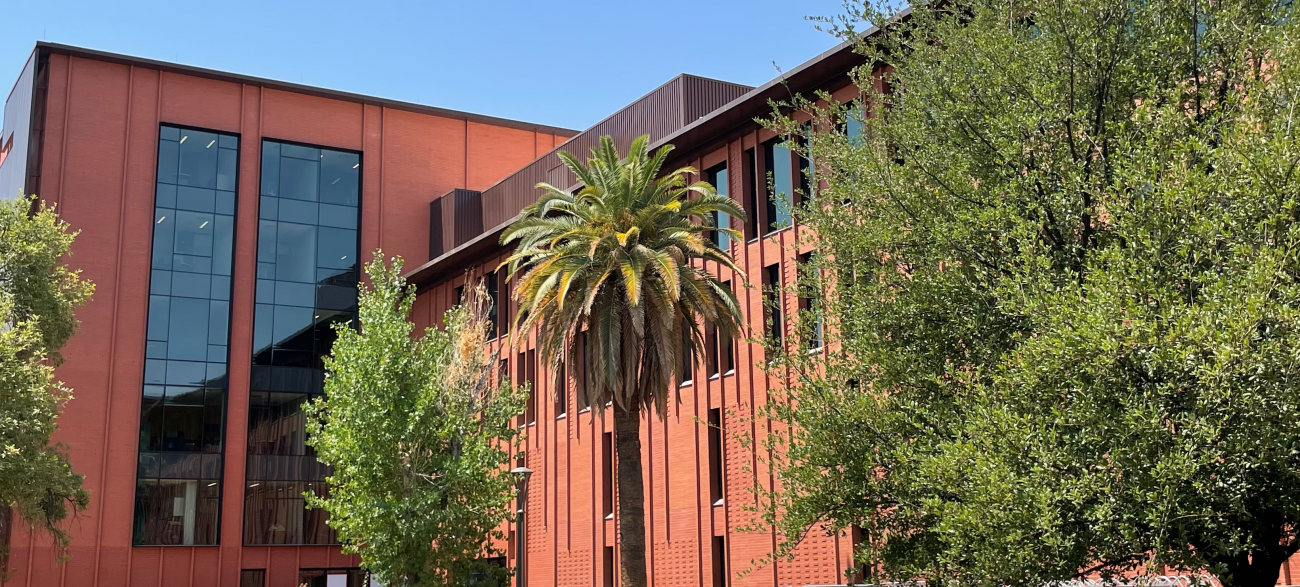
American Sign Language
ASU does not offer a degree, minor, or certificate in American Sign Language or any deaf-related field.
Interpreter training in Arizona is provided by Phoenix College and at the University of Arizona.
The American Sign Language (ASL) program is housed in the School of International Letters and Cultures. It offers a four-semester sequence of ASL designed to meet the undergraduate foreign language requirement of the university. All courses use an immersion method that prohibits the use of spoken language. Periodically, additional courses are offered to augment this program. These additional courses are offered on a semester-to-semester basis.
Foreign Language Requirement
American Sign Language can be used to satisfy the foreign language requirement in most majors that have such a requirement. A small group of specialized majors excludes ASL because the major itself is incompatible with a visual language (e.g., vocal performance). If there is any doubt, consult with your academic advisor.
Completion of a four-semester language requirement in ASL is defined as completing ASL 202 with a grade of "C" (2.00) or better.
Registration
ASU American Sign Language classes are open to all registered ASU students. There is no additional application procedure.
The School of International Letters and Cultures offers a range of American Sign Language courses during the fall and spring semesters. Summer classes may be provided during the six-week summer session. All courses are listed under "ASL" in the course catalog (e.g., ASL 101).
Courses fill quickly. College policy prohibits overrides into full classes. The only exception is graduating seniors who need ASL 202 and are graduating at the end of the semester during which they wish to take to ASL. There are no other exceptions. Registration errors, financial aid matters, and previous registration attempts are not exceptions.
If you are unable to obtain enrollment during the initial registration period, you should continue trying to add until the first day of classes. Some students do get into classes using this approach.
The School of International Letters and Cultures has adopted a set of technical standards that define physical prerequisites needed to enroll in an ASL course. Meeting these standards does not require any previous knowledge of American Sign Language.
Transferring ASL Course Work
All students entering ASU are subject to an enrollment block that prohibits enrollment in any course higher than ASL 101. This occurs because, in most cases, previous ASL coursework is not automatically transferred into the ASU system. Therefore, the registration record indicates you have not completed the prerequisites needed to enter a higher level.
If you have taken ASL courses at another accredited college, university, or in high school, you may be eligible to register at a level higher than ASL 101. Only courses completed within the last two years will be considered.
If you are currently enrolled in an ASL course, you can submit proof of enrollment in place of a transcript (e.g., course schedule showing you are registered in ASL).
All paperwork submitted with a course restriction override will be destroyed once the course restriction override has been processed.
High school students: You must have completed at least one year of ASL in high school to be eligible for placement by course restriction override. Regardless of how much ASL you have taken beyond one year, high school students cannot be placed higher than ASL 102 using the ![]() asl-course-restriction-override-request-form-20180815.pdf.
asl-course-restriction-override-request-form-20180815.pdf.
A course restriction override does not enroll you in a course or guarantee enrollment. Even if you are allowed to enroll in a higher level, you must still proceed through the usual registration process to enroll in a course. It will not allow you to enter a full class.
Providing proof of previous ASL courses does not transfer the courses or credits to ASU. Previous ASL experience will only serve to place you at a higher level. You are responsible for earning the requisite number of units to graduate.
ASU ASL does not offer comprehensive testing. Students who have extensive experience with ASL will need to be placed in and complete ASL 202 to fulfill their language requirements.